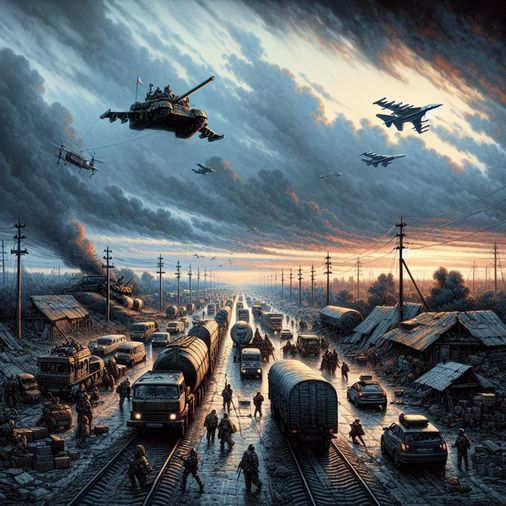Ukraine Launches Major Incursion as Russia Evacuates Thousands Amid Escalating Conflict

On August 10, Russia announced a mass evacuation of tens of thousands of residents from its border regions as it struggled to manage a significant military incursion by Ukraine. This incursion is considered one of the most successful offensives by Kyiv in the ongoing conflict, marking a pivotal moment in the nearly two-and-a-half-year war. Ukrainian forces crossed the border with an estimated 1,000 troops backed by armored vehicles and tanks, prompting Moscow to deploy reserves and additional military equipment in response.
Reports indicated that over 76,000 people had been temporarily relocated to safe areas due to the fighting, with emergency aid being sent to the frontline. Russian state news agency TASS reported statements from local officials detailing the scale of civilian evacuations from towns and villages near the combat zones.
In the chaos of conflict, many residents have sought refuge in Moscow; one evacuee expressed the distress of the situation, stating, "The war has come to us." To accommodate those fleeing, extra trains to the capital have been organized.
Ukrainian President Volodymyr Zelensky acknowledged the operation in his evening address, referring to briefings from army chief Oleksandr Syrsky, and emphasized Ukraine's efforts to push the conflict into the territories of the aggressor nation. He expressed gratitude for the troops involved, reiterating that Ukraine is implementing necessary pressure on Russia.
While Kyiv remains tight-lipped about the details of the incursion, Russian military claims suggest that Ukrainian forces have made significant advancements, even as they report having destroyed considerable military equipment in their efforts to repel the attack. An escalation in national defense measures was announced by Russia's national anti-terrorism committee, which initiated counterterror operations in the Belgorod, Bryansk, and Kursk regions—areas that have barely escaped bombardments since the beginning of the conflict.
In response to the incursions, local Moscow residents expressed overwhelming support for stringent measures to regain control but also showed frustration at the circumstances that allowed such invasions to occur. Russia's anti-terrorism committee depicted Ukraine's actions as an unprecedented attempt to destabilize Russia.
The fighting has raised alarming concerns regarding the safety of nearby infrastructure, particularly the Kursk Nuclear Power Station, which is less than 50 kilometers from the ongoing military activities. Russian officials warned of the potential dangers posed by Ukraine’s military actions in this vicinity. This sentiment has been shared by international figures as well, including the head of the International Atomic Energy Agency, who urged for maximum restraint in the region.
As the situation escalates, Belarus, a key ally of Russia, has ordered military reinforcements to its border with Ukraine, indicating increasing regional tensions. Meanwhile, Ukraine has reported a lower number of combat engagements on its territory, suggesting that the incursion might relieve some pressure on various sections of the extensive frontline.
This new chapter in the conflict could potentially reshape the dynamics of power in the region, with both sides bracing for further escalations in the coming days.
Related Sources:
